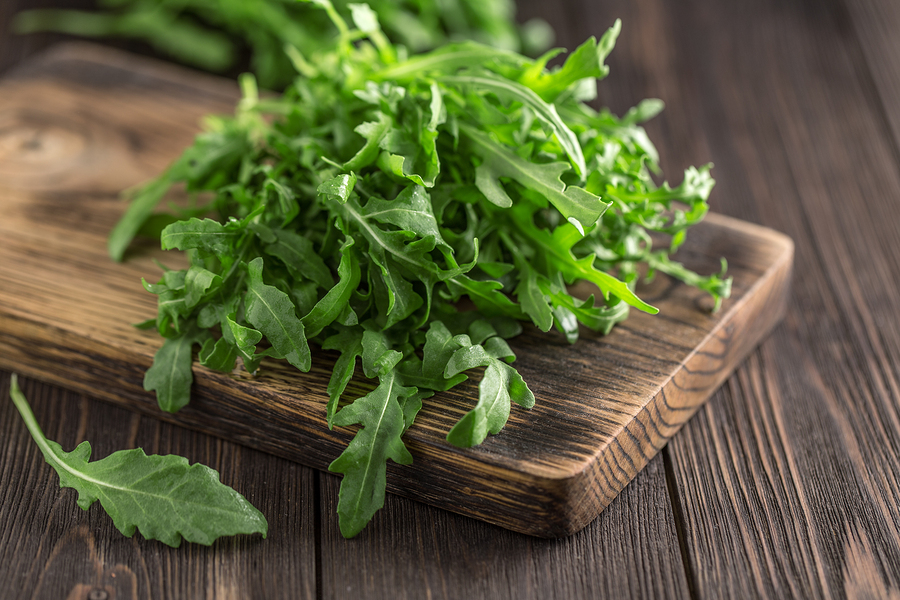With a nutrient profile similar to kale, Brussels sprouts, and broccoli, arugula is an excellent alternative to these other cruciferous vegetables. Its distinctive, almost peppery flavor, makes arugula easy to enjoy and you’ll easily boost the flavor and health power of a meal when you add in this Mediterranean leafy green.
Arugula is high in the following vitamins and minerals:
- Vitamin C, A, and K: these antioxidants play a role in protecting cells from free radical damage (oxidation). Vitamins A and C also support a healthy immune system. Vitamin K is involved in the body’s blood clotting process and plays a role in bone health, which helps prevent osteoporosis.
- Folate (a B vitamin): supports the production of DNA and is very important in a healthy pregnancy and fetal development.
- Calcium and potassium: minerals that have many functions in the body. Both are involved in producing strong muscle contraction. Calcium is important to bone and tooth health. Potassium, an electrolyte, is essential for healthy heart and nerve function and it helps maintain healthy sodium levels in the body.
Add arugula to a salad, rice and other grains, or use in your main meal in lieu of parsley or other herbs. With its lovely leaf shape, flavor and edible flowers, arugula can add pizzazz to many dishes.
References
- Healthline.com “What You Should Know About Arugula.” Accessed 21 Nov 2018: https://www.healthline.com/health/food-nutrition/arugula
- MedicalNewsToday.com, post by Ware, M., “Everything You Need to Know About Arugula.” posted 2 Nov 2017. Accessed 21 Nov 2018: https://www.medicalnewstoday.com/articles/282769.php

